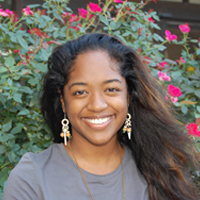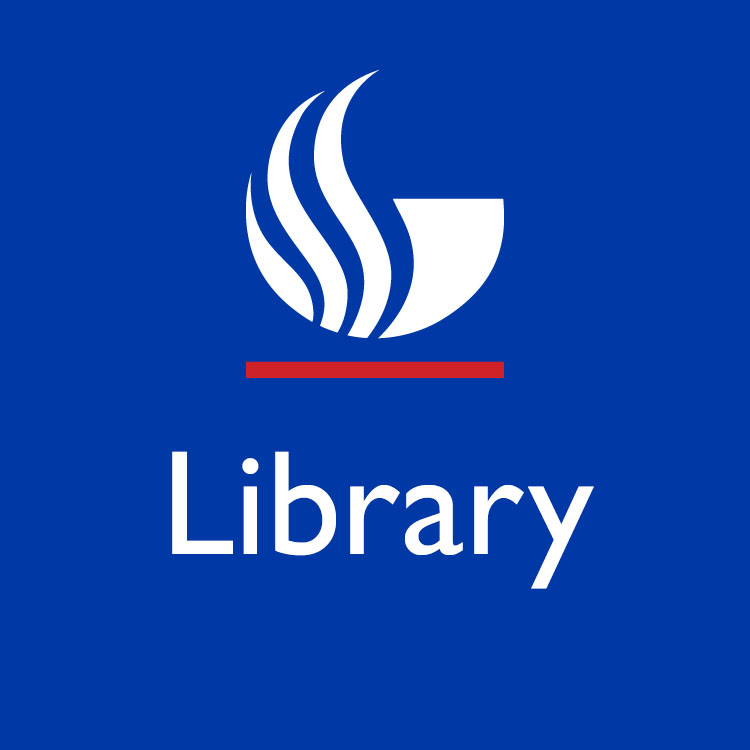Interview with Bianca Islam, Undergraduate Researcher
 Bianca Islam is a senior biology major, graduating in May of 2011, whose work in the field of microbiology was published recently. She continues to participate in conferences and volunteers at several institutions while also applying to graduate school. Her overall goal is to enter an Md/PhD program.
Bianca Islam is a senior biology major, graduating in May of 2011, whose work in the field of microbiology was published recently. She continues to participate in conferences and volunteers at several institutions while also applying to graduate school. Her overall goal is to enter an Md/PhD program.
We recently sat down with Bianca to discuss her research projects and how the library’s services and resources contributed to her work.
How did the library play a role in your success? Which resources were the most helpful?
Prior to research, you need to read your principle investigators’ publications, which can be accessed in the library. To do your own publication you must do some background reading. These materials can be found in the science section of the library. EndNote tutorials given by librarians also helped in citations. PubMed was definitely a helpful source for medical articles. GALILEO in general was great at locating articles. Primarily it starts with GALILEO, and PubMed and the EBSCOhost databases are also on top of the list.
Did you ever seek assistance from the subject librarians or the research support desk?
Yes, I met with the chemistry and biology subject librarians, and I also went to the Research Support Desk for advanced searches. They are extremely helpful with even the smallest things like stapling and printing papers.
How often do you use the library in general?
I come here every day. Aside from the fact that Saxbys is here and I’m a coffee addict, I’m in here all the time because I’m taking advanced courses my senior semester. I’m in here with study groups and kicking people out who are not supposed to be in there. It definitely helps, and I’m usually here until the library closes. This is my refuge, per se.
The data shows that the largest majority of students visiting the library are biological science majors. Why do you think that is?
The only place aside from the classroom to work on problems is here. The quiet floor and the study rooms are helpful environment to really study. Places that are quiet are really helpful because science majors taking organic chemistry can’t truly think with noise going around. The big white boards are needed for writing out reactions, pathways and equations. Also people taking organic chemistry are required to identify unknown compounds through a registry, which can only be found in the library.
What interested you about the biology and medical fields?
It started out when I was really young. It was either art or science. Then in 6th grade, you have your first science classes. I fell in love with science but still liked art and a lot of fashion. I didn’t think it would be that fruitful though. So I went to the sciences. Since then, I was really successful with science. Specifically, I always thought about medical school. Usually when you are in competitive environment, when you say biology you’re usually referring to medical school. So that initiated me to be biology major in Georgia State. With the University Scholars Assistantship, you get the opportunity to potentially work in a lab. I got to work in a microbiology lab as a freshman. I got involved in research and it inspired me.
Do you have any advice for beginning biology majors?
If you want to get involved in the lab early on, talk to your professors for information. Find out what kind of biology field you are interested in, and check out the specific professor related to the field. E-mail the professor if you can sit in on a lab, and let them know that you are interested. Ask to volunteer in their lab. E-mail several professors to give you a better chance on being accepted. Get a head start by starting your freshman year.
Any other tips for undergraduate students at Georgia State?
Freshman Learning Communities are a great way to easily transition into college. Think about the long term, and limit the unnecessary classes that you take. Start off with a great academic foundation. Invest in studying, and don’t study the night before. Don’t memorize. Actually learn the material. If it takes an hour to read 2 pages, do it, because you will learn it and won’t have to go back. Have a work/life balance. Don’t over focus on one factor. Don’t just study all the time because at the end of the day all you have is a 4.0 and a bunch of classes. But the person who works and studies while maintaining a 4.0 will be more prepared in the future. Make connections and network. Make a list of goals and what you need to do. Don’t keep it in your head and don’t be a master procrastinator. Write your schedule down so you won’t forget. Be efficient.
